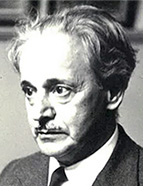

Consequently, the epistemological consideration that “ the principles of science are on the same level as the scientific reality for which they are the starting point, i.e. , they are not transcendent ” applies to scientific history ( OF III , p. 220). If science-history contains the legitimate aspiration to reduce the gap between cognoscere and intelligere ( OF III , p. 285), giving rise to a philosophy of history in line with what he thought was the contemporary epistemological standard of a “ scientific-philosophical osmosis ” ( OF III , p. 255), it can only be realised by strengthening its gnoseological process, adequately managing the border with the adiaphorous in the triple dimension of the unknown, the irrelevant , and the irrational, so as to offer sufficiently solid support for the search for an equation whose formula subsumes the diversity of what is lived in the abstraction of conception, which cannot be mistaken with any epistemically unfeasible prediction of its course or outcome. In the 1919-1920 article, this correlation was already clearly stated: “ a) Pour qu’il y ait une philosophie de l’histoire, il faut et il suffit que la science de l’histoire soit possible et commence à devenir réelle. Réciproquement, b) S’il y a une philosophie de l ’ histoire, il y a aussi, nécessairement, une science de l’histoire ” ( OF I , pp. 215-216).
The first and main contribution of P hilosophy , therefore , concerns this effort to rationalise the epistemological conditions, either by analysing the fundamental concepts or by determining that logic of limits whereby, by reducing the extent of the knowable, the intention of the known is increased , and the possibility of a higher level of understanding opens up. This, however, must remain in a direct relationship with the knowledge acquired, without trying to replace what is possible to know, based on the trail left by human action, with a metaphysics of H istory. From this collaborative task, in addition to the aforementioned critical exercise, he took it upon himself to define the scale required for H istory to become a fully-fledged social and human science, according to the idealised standard of scientificity, which presupposes, as we have indicated, an abstract knowledge of complex relationships .
This work is financed by national funds through FCT - Foundation for Science and Technology, I.P, in the scope of the projects UIDB/04311/2020 and UIDP/04311/2020.
